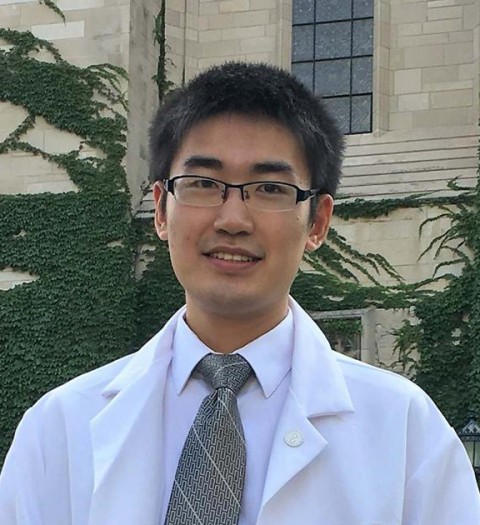Over the past five years, CAR T-cell therapy has given some cancer patients hope for remission. This form of immunotherapy adds a gene — called a chimeric antigen receptor, or CAR — to a patient’s T cells, which helps these immune cells find and attack cancers.
To continue improving this therapy, researchers need specific, sensitive, and precise reagents that can detect CARs in blood samples. That helps them understand how well the therapy is working in a patient, and also helps them develop new CARs for improved therapies.

Researchers at University of Chicago’s Pritzker School of Molecular Engineering and the David and Etta Jonas Center for Cellular Therapy at UChicago Medicine have developed a new reagent that works even better at detecting multiple kinds of CARs. The result could lead to better diagnostics and ultimately improved therapies for patients.
The research, led by graduate student Yifei Hu in the lab of Prof. Jun Huang, was published in the journal Matter. The study resulted from a collaboration between the labs of Huang and Justin Kline, associate professor of medicine.
“Antigen-multimers can serve as a universal reagent to detect existing and new CARs, and will catalyze the development, manufacture, diagnosis, and treatment of CAR T-cell immunotherapy,” Huang said.
A new approach to detecting CARs
When patients undergo CAR T-cell therapy, physicians take a blood sample, re-engineer the T cells within the sample to include a CAR specific to their cancer, then return the blood to the patient’s body. Those T cells then use the CAR to find and attack cancer. (The University of Chicago Medicine was the first site in Illinois to offer this therapy in 2017).
While the therapy has led to long remission rates for some patients with certain types of lymphomas and leukemias, other patients do not respond to the therapy. In order to better understand that discrepancy, researchers are looking at how CAR T cells proliferate once inside the body.
But measuring CAR T cells can be difficult. Some of these cells have a naturally lower CAR expression, while others decrease their CAR expression over time. Current reagents (often made with anti-idiotype antibodies that are designed specifically for each kind of CAR) can be expensive and unstable.
